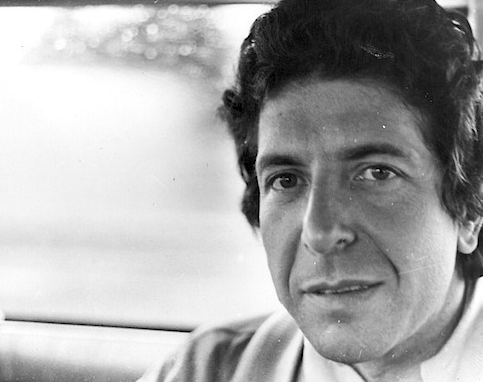Leonard Cohen passed away just two months after his 82nd birthday.
I remember exactly where I was when I found out he had died.
I’d woken up in the apartment I’d moved into just days before, seeing a notification on my phone from CBC News: “Singer-songwriter Leonard Cohen dead at 82.”
I always loved Cohen for his music—“Hallelujah,” “So Long Marianne,” “Suzanne”—but it wasn’t until I took a class in my final year of university on Leonard Cohen the writer that I fell in love with Leonard Cohen the person.
I knew little about his poetry and even less about his novels. We read The Favourite Game and Beautiful Losers, both highly praised works of fiction that were also very much representative of Cohen’s personal and creative struggles.
In Beautiful Losers, the three main characters are all obsessed with the idea of perfection, and they are all ultimately destroyed in their pursuit of it.
Cohen was fascinated by our cultural obsession with perfection—in terms of both the body and mind.
Cohen was not a perfect man. He was not a perfect lover. He was not a perfect writer, either.
But this was what made him so commendable—it’s what made him human.
“There’s a crack in everything. That’s how the light gets in.” ~ Leonard Cohen, Anthem
I have to admit: I fell in love with Leonard Cohen that year.
I fell in love with the way he loved.
I fell in love with his humour, his wit, his undeniable charm even as his hair greyed and he became the iconic Cohen we all know—brimmed hat and a cheeky grin.
I fell in love with the vulnerable Cohen; the one we see on film when he thinks the cameras are no longer on him.
I fell in love with his concept of travel—how he moved between bodies and minds in the pursuit of great love and art, often unsure of where one began and the other ended.
“Now
I know why many men have stopped and wept
Halfway between the loves they leave and seek
And wondered if travel leads them anywhere—
Horizons keep the soft line of your cheek,
The windy sky’s a locket for your hair.” ~ Leonard Cohen, Travel
I fell in love with his representation of the artist: tortured, unable to escape the call to write and connect no matter how painstaking it may be at times.
I fell in love with how he struggled to be the multifaceted Cohen—torn between artist, man, and celebrity.
I fell in love with his fascination with sexual liberation, pleasure, and pain. And I fell in love with the ways in which he explored these topics, in the twisted characters in his novels and dark poetry.
I fell in love with spiritual Cohen. The one who found Buddhism in a monastery, years after he left his womanizing “travel” days behind.
“When you call me close
to tell me
your body is not beautiful
I want to summon
the eyes and hidden mouths
of stone and light and water
to testify against you.” ~ Leonard Cohen, Beneath My Hands
I feel a special connection to Cohen because we both studied English Literature at McGill University in Montreal, and we both came from Jewish families.
When I read Cohen in that final year of undergrad, it was the first time I read a poet whose words haunted me long after I’d put their book away.
I remember curling up in my bed in my small apartment, clutching the edges of Let Us Compare Mythologies, my eyes burrowed in concentration.
Cohen helped me reconnect to my artist-self.
He reminded me that writing is not just a passion—but a calling—and one that I, too, cannot escape.
It’s in this reflection on Cohen that I am reminded of what I took away from his works: the ability for self-criticism to turn into self-compassion.
Cohen will always hold a special place in my heart.
Let’s listen to his music and read his words on this day to remind ourselves of the beauty he brought into our world and the legacy he left behind.
~


 Share on bsky
Share on bsky





Read 0 comments and reply